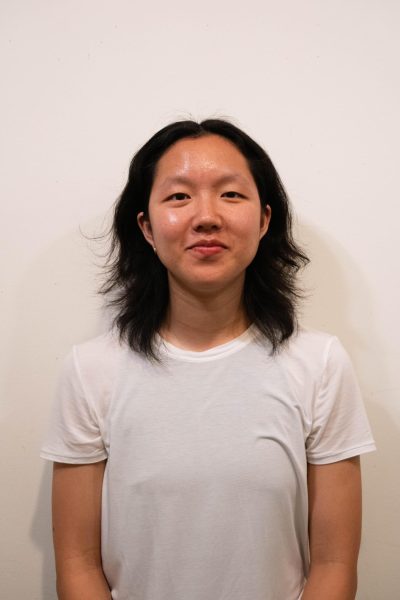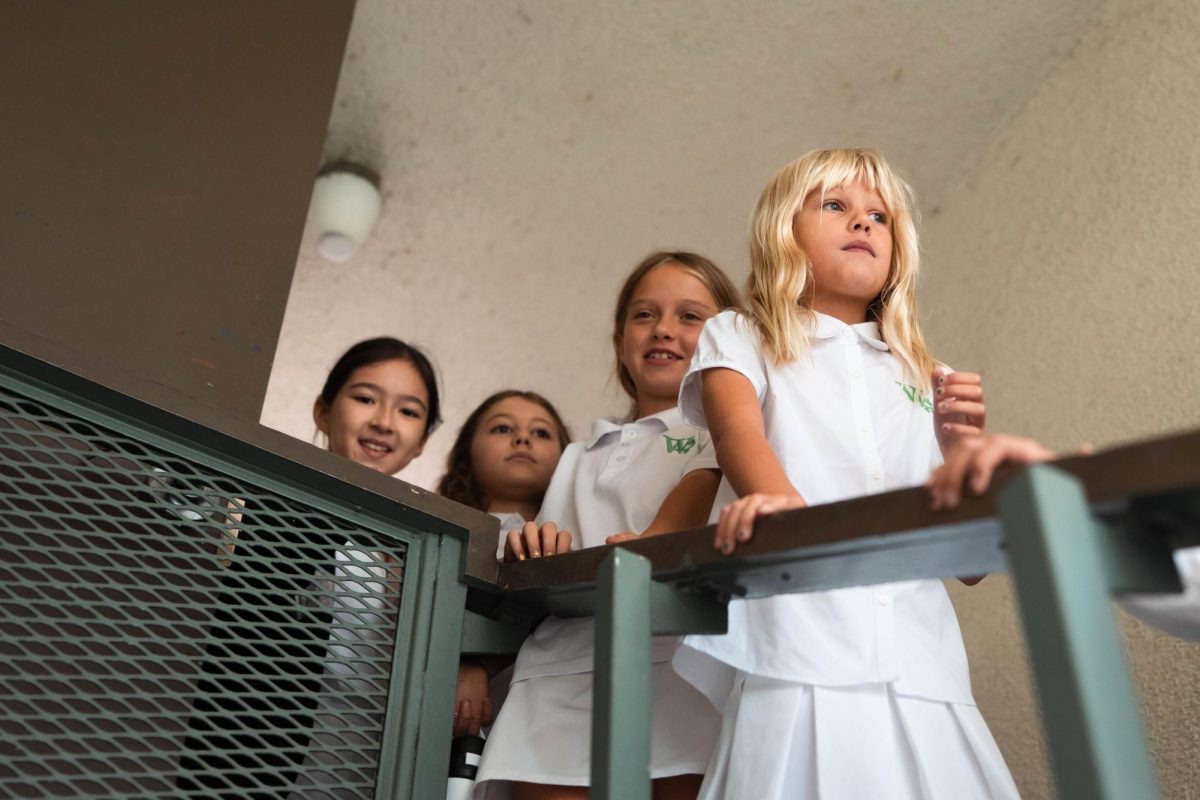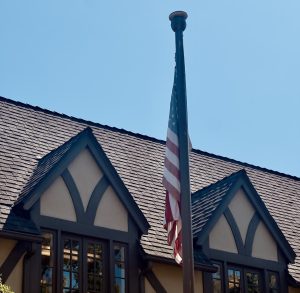
The Westridge campus, tucked away in a liberal county in one of the most liberal states, can feel isolated from the turmoil of national and global politics. It is a kind of privilege in a very real way. Recent events like the Eaton fire remind community members that this private school of over a 100 years is not, in fact, above either the winds of fate or the long arm of the Trump administration’s far-reaching policies.
President Trump’s proposed budget for 2026 includes a cut of all non-defense spending by 23%, and will specifically reduce the budget for the National Science Foundation, which supports scientific research and education, by 56%. The executive orders Trump issued in his first week in office, including Executive Order 14173, force federal contractors and grantees to certify they “do not operate any programs promoting DEI that violate any applicable Federal anti-discrimination laws.” Executive Order 14160 attempts to end birthright citizenship for children of undocumented parents.
As a private school and a non-profit, Westridge does not receive funding from the government. Even during the pandemic, unlike other Los Angeles private schools including Brentwood School, Westridge did not take out Payment Protection Program (PPP) loans from the federal government for COVID relief. However, Westridge students and faculty do engage with programs that receive federal funding and oversight and programs that could potentially be impacted by the Trump administration’s new policies.
Discovery Week
For this year’s Discovery Week, senior Emily L. made the decision to switch to the Chile trip from her original choice of Namibia because of her concerns about her green card. “It’s definitely a frightening time right now for people in the US without citizenship,” she said. Since the beginning of the Trump administration, tourists from Germany, Canada, and Wales have been detained at the U.S. border.
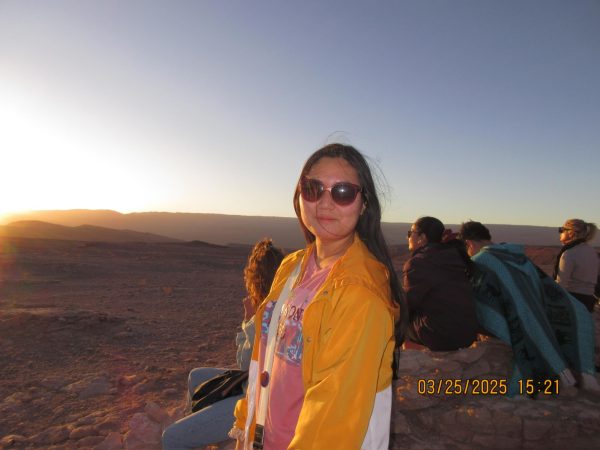
According to Assistant Director of Upper School Ms. Kerri Epps, the Upper School administration consulted the Institute for Global Learning, an organization that offers resources for travel with students, and several embassies before the trips to ensure the safe travel of all students.
Melissa L. ’26 is concerned about attending the senior trips next year with a Chinese passport because they are international. “I’ve been worried about coming back and going through customs because I’ve heard that [Trump] has made it more difficult,” she said.
However, Ms. Epps confirmed that there were no issues this year. She will be attending a webinar hosted by the Institute for Global Learning about traveling internationally with students. Additionally, she explained that Westridge partners with a law firm that is prepared to support students if any issues arise. Faculty chaperones are also prepared to help students who have to enter customs through different lines based on their citizenship status. “The hope is we have safety nets in place and never have to use them. Nothing is more important than student safety and well-being,” Ms. Epps said.
Diversity, Equity, and Inclusion
For several years, students have attended the Student Diversity Leadership Conference (SDLC), where hundreds of high school students nationwide and from other countries gather to discuss diversity, equity, and inclusion at independent schools. Similarly, faculty and staff have attended the People of Color Conference (PoCC).
While the National Association of Independent Schools (NAIS), the organization that hosts the conference, is a nonprofit that does not rely on government funding, the NAIS decided not to run the 2024-2025 conferences. The announcement on their website states: “Given the rapidly evolving political and legal landscape, we are taking this time to reassess the conferences. We are doing so as part of the broader strategic planning process we are undertaking to help guide all of our work, including our efforts to support schools’ inclusion and belonging goals.”
This February, students instead attended the NAIS Student Civic Leadership Summit, which also focuses on leadership development. However, the SDLC and PoCC conferences have provided not just learning opportunities, but also identity-affirming spaces for traditionally marginalized groups. Shania W. ‘27, who attended SDLC last year, said, “I was able to open up about my struggles with my identity and be surrounded by a room full of people who affirmed me and related to what I said. It was such a great way to bond with other people and to learn how to effectively listen and communicate.”
Disappointed by the cancellation of the conferences this year, Shania added, “Restrategizing due to the current political climate may actually create bigger implications than putting it on pause; more than ever, students want an outlet to talk about their frustration with like-minded individuals.”
The Westridge community will continue to engage in diversity, equity, and inclusion through student, parent, and alumni affinity spaces, student voices, and assemblies as outlined in the 2020-2025 Five Year Strategic Plan.

Research in Science
In the Research in Science class, seniors spend six hours each week working at a scientific research lab at a local college or hospital. Upper School Science Teacher Dr. Ryan Skophammer, who teaches the class, reaches out to local professors and researchers to pair each student with a lab. In past years, every student has found a lab opportunity.
Senior Kristen D., who conducted geochemistry research through the class, found her lab experience to be both fun and meaningful. “Research in Science was a really important class because it gave us a lot of opportunities that I don’t think you can find at any other school. We had incredible opportunities with incredible professors that are doing really cool research,” she said.
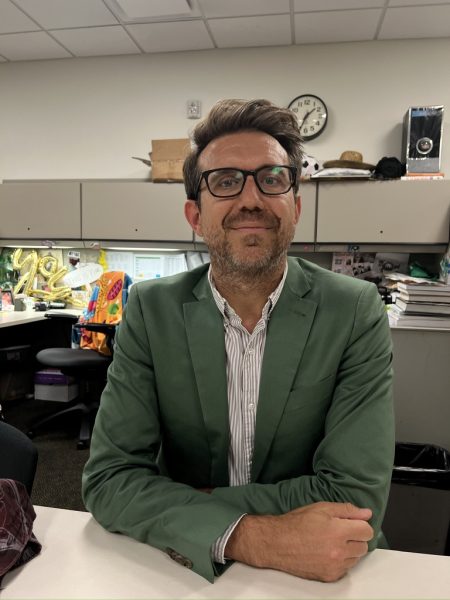
However, Dr. Skophammer explained that if the labs, like at Occidental, Caltech, or the City of Hope Hospital, that have typically accepted Westridge students, lose funding, they will take on fewer graduate students. Since graduate students typically take on the role of mentoring high school students, with less staff, labs will likely not continue offering opportunities for Westridge students. “I’m concerned. I’m just starting to reach out [to labs] right now, so I don’t know if it’s going to have an effect on us. I have to remain optimistic… but it’s definitely on my mind,” he said.
In early March, he invited Caltech postdoctoral fellow Dr. Brittany Edens, who has mentored Westridge students for four years, to speak to the Research in Science class about the Trump administration’s cuts to science research funding. “[Scientists] are feeling very negative about what’s going on. It’s all speculation, because we’re entering an unprecedented attempt to dismantle the greatest scientific research apparatus in the history of time,” said Dr. Skophammer.
Faculty Grants
Middle School Science Teacher Mr. Darren Brown, who conducts marine biology research each summer, receives a biyearly federal funding of $40,000 from the National Science Foundation. Each year, he brings his field data back to Westridge and shares it with his STEAM and the Ocean class to use in their climate change projects.
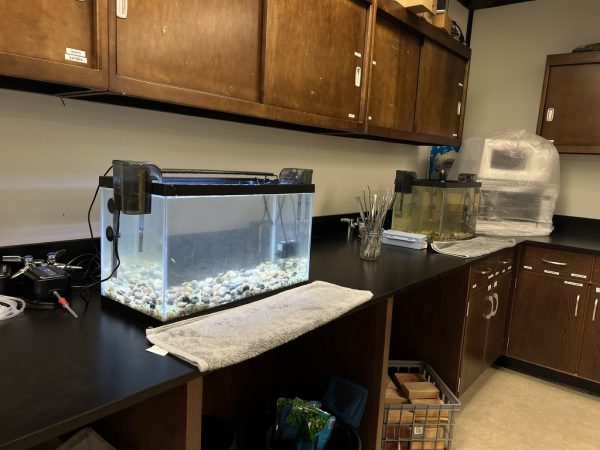
While the funding for the lab he works with has not yet been cancelled, he is concerned. If the lab’s grant is cut, “my [funding] really is the first thing to go,” he said. Without the funds, students in STEAM and the Ocean could no longer complete the main project of the class because they would not have long-term data of coral reefs to analyze. “If the data’s gone, then I’ll have to do something else,” he said, adding that, “The coral reefs have been recorded for 20 years. A gap of four years—losing that [data] would be like losing a part of history.”
Middle School English Teacher Ms. Kara Ramirez has applied for several grants through the National Endowment for the Humanities (NEH) to attend summer intensive programs with other educators. Previously, she has attended courses about the role of women and other marginalized groups during the Revolutionary War, as well as the history of English instruction in the United States.
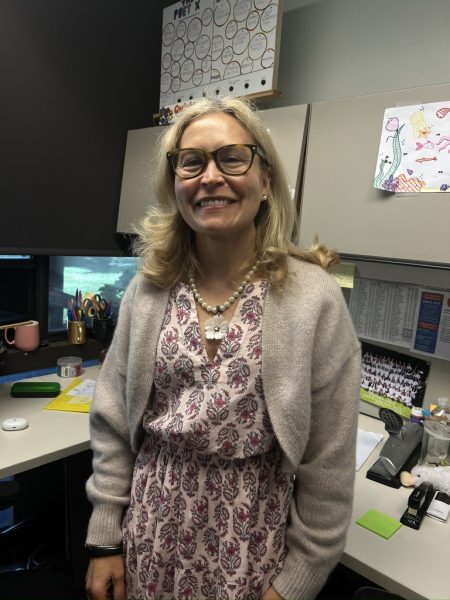
This year, she applied and was accepted to the NEH Voices of the Ancients summer program. She was interested in the course because of its focus on storytelling as a way to preserve culture and process pain, which she wanted to tie into the 8th grade American Studies class she teaches. However, just two days after receiving her acceptance, she was notified that funding was cut for the program’s relation to diversity, equity, and inclusion. She pursued alternative opportunities for the summer.
“It’s pretty tragic because I think the work the NEH does in this context is to keep our thinking about history, literature, and humanities moving forward. And so it’s totally disappointing,” she said.
Still, Ms. Ramirez expressed gratitude for the independence she has in the classroom. Compared to the other teachers she has met through the program, who she says have experienced extreme pressure in how or what they taught and are afraid of students’ families, “I have a deep appreciation for the fact that Westridge lets us teach books that in other places are considered highly controversial, and [that] my students are intelligent enough to see writing as a platform to criticize,” she said.




























![Dr. Zanita Kelly, Director of Lower and Middle School, pictured above, and the rest of Westridge Administration were instrumental to providing Westridge faculty and staff the support they needed after the Eaton fire. "[Teachers] are part of the community," said Dr. Kelly. "Just like our families and students."](https://westridgespyglass.org/wp-content/uploads/2025/03/dr.-kellyyy-1-e1748143600809.png)






















